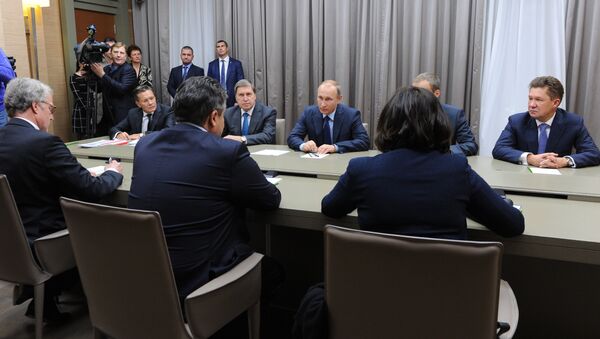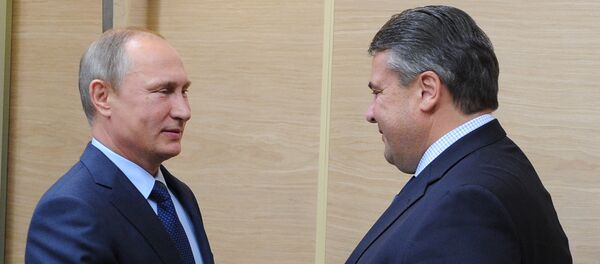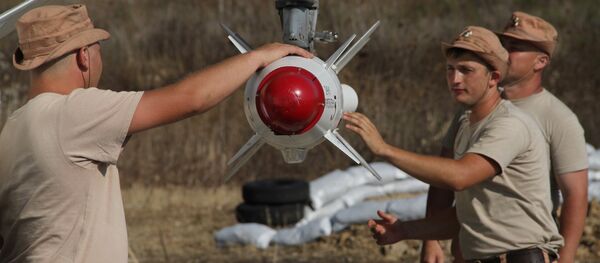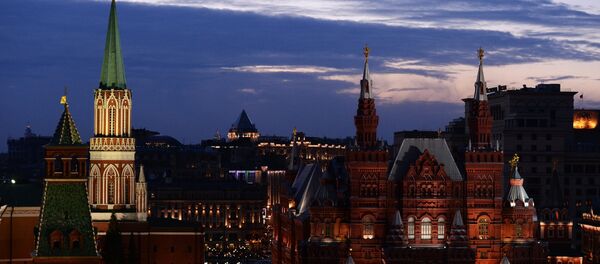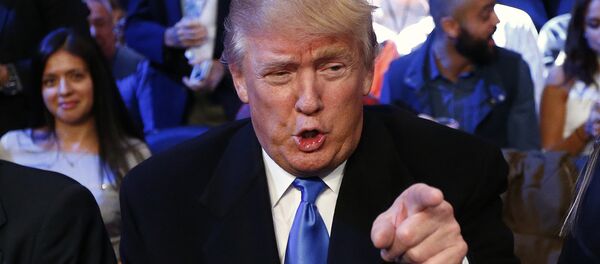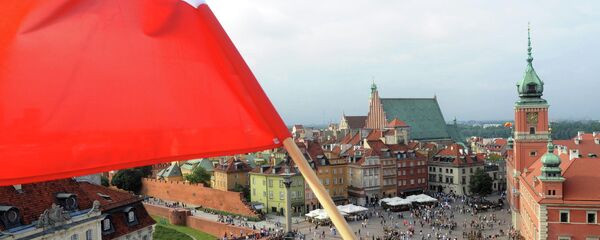“Germany sent a signal Wednesday that it is rethinking its relationship with Russia, when Vice Chancellor and Economy Minister Sigmar Gabriel met with Russian President Vladimir Putin in Moscow,” the article says.
“Berlin is looking for ways to modify or even lift the current punitive measures against Moscow. However, such a decision would probably create friction between Germany and most Central and Eastern European countries, which means that Berlin is still not ready for a formal change of direction,” it adds.
The author then gives his reasons why Russia and Germany might be of some interest to each other.
Germany's Interest in Russia
Russia is only Germany's 13th most important exports destination, he reasons, but at a time when Europe's economic recovery is still fragile and China's growth is slowing, Berlin probably thinks it needs to diversify its exports as much as possible.
“Germany is also interested in improving its ties with Russia for energy,” the article says, going into some detail.
“Germany is the largest consumer of Russian natural gas. This fact forces Berlin to make sure that German and Russian energy companies continue to cooperate. It also forces Berlin to balance between containing Moscow's influence in Central and Eastern Europe and making sure Russia continues to sell natural gas at affordable prices.”
Another reason, the article says, is that Germany sees Russia as a “key player in solving the crisis in Syria, which is directly linked to the increased arrival of asylum seekers in Europe.”
The above echoes a recent discourse of Ian Bremmer, TIME editor-at-large and the president of the Eurasia Group, who said that Europeans “have got sick of anti-Russian sanctions.”
And, as Ukraine “has left the headlines”, he said, “you see more European leaders saying: let’s try to normalize our relationship with President Putin.”
Russia's Interest in Germany
The reason why Russia, in turn, is interested in Germany, Stratfor says, is that “the Kremlin has been actively lobbying many European countries, such as Italy and France, to ease sanctions — though Moscow knows that Germany is the key to unlocking the sanctions."
“Putin is probably also thinking long term. Gabriel is the leader of the Social Democratic Party, which traditionally has been sympathetic to Russia. With the popularity of German Chancellor Angela Merkel's Christian Democratic Union party in decline because of the refugee crisis, there is a chance Merkel will not be victorious in the next general election, scheduled for 2017. The Social Democratic Party is also taking a hit because of the refugee crisis, but preserving Russia's good ties with the German center-left could be useful should the party perform well in two years.”
Attention of Ukraine and the United States
Gabriel's meeting with President Putin, Stratfor suggests, will draw the attention of Ukraine and the United States.
“Lifting sanctions against Russia could damage Germany's relationship with the United States and also force the White House to increase its economic and military cooperation with former Communist states, from Poland to Romania. This would, in turn, deepen the European Union's already serious political fragmentation.”
“Though countries in the West such as Italy and France would welcome an easing of tensions with the Kremlin, most EU members in Central and Eastern Europe continue to push for a hard line on Moscow,” it further warns.
Therefore, the agency concludes, “Germany will probably choose to deal with one crisis at a time.”
“Gabriel's meeting with Putin suggests that Berlin is testing the waters before making a decision on the future of Germany's relationship with Russia,” it states.

